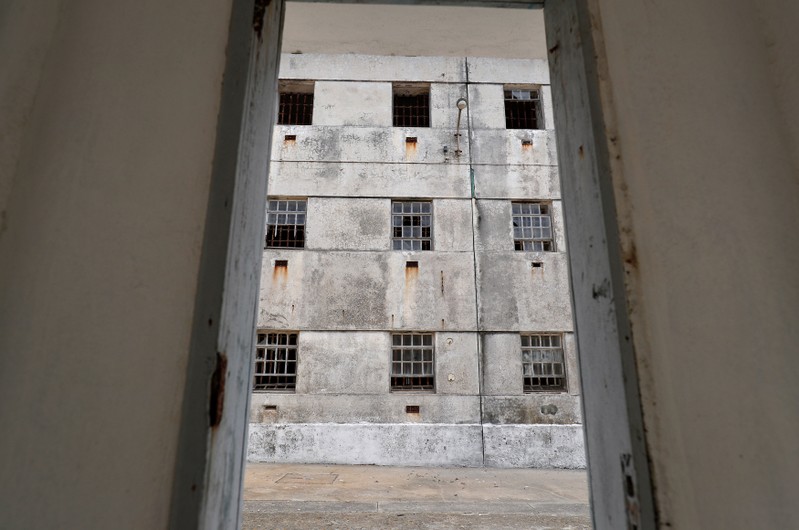Portugal plans to turn a notorious prison where anti-fascist activists were once beaten and tortured into a museum to help ensure that the memories and experiences of its ageing survivors do not die with them.
And as support for far-right groups grows across Europe, the survivors say it is vital that younger generations learn about their suffering under Antonio Salazar, Europe’s longest serving right-wing dictator.
Salazar ruled Portugal with an iron hand from 1932 till his death in 1968, though his regime only finally crumbled in 1974, in the bloodless ‘Carnation’ revolution.
The towering fortress prison in the town of Peniche, some 100 km (60 miles) north of Lisbon, was the largest jail of its kind in the Salazar era. There, his secret police, known as the PIDE, dealt mercilessly with opponents of his regime.
It will reopen next April as a museum devoted to the anti-Salazar resistance and the fight for freedom after Portugal’s minority Socialist government, backed by the Communists who helped to topple the regime in 1974, reversed a decision to hand over the site to private investors.
Standing in the cell where he spent nearly a decade of his life, veteran Communist activist Domingos Abrantes, now 82, recalled the sleep deprivation, extreme variations of temperature and emotional blackmail which he and other inmates had to endure.
“We spent 22 to 23 hours a day inside the cell and we got punished a lot. But I have visited dozens of schools across the country (in recent decades) and when I tell my story some kids ask me if it really happened,” he said.
“The best way to respect the memory of those who sacrificed themselves is to make sure fascism doesn’t ever return. The far-right is growing in Europe so it’s now more important than ever to tell younger generations about it,” he told Reuters.
Activists say previous governments have often intentionally sought to eradicate memories of Portugal’s fascist past. For example some sites, including Salazar’s secret police HQ in Lisbon, have been turned into luxury flats or hotels.
Historian Irene Pimentel said the national curriculum in schools also paid too little attention to the Salazar era.
“But now the grandsons and granddaughters of those who lived through the dictatorship are becoming interested in what happened and those who lived during the regime are getting older,” Pimentel said.
The Peniche museum is not the only current initiative trying to keep memories alive. In May a fortress used by Salazar as his holiday residence was turned into an artistic hub. Filmmakers and theatre producers are also starting to bring untold stories about the regime to Portugal’s stages and big screen.
Paula Silva, director of Cultural Heritage which will manage the museum, said: “Freedom is a human right but it can vanish.”






